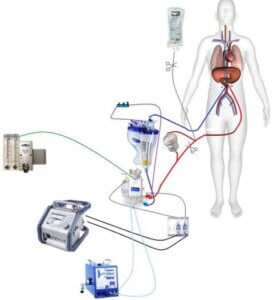5 Things You Should Know Before Embarking on a Perfusion Career
Have you been thinking about embarking on a career in perfusion? If being part of a team that saves lives while earning a decent paycheck appeal to you, you might want to look into this career path. Though a perfusion career can be extremely fulfilling and fruitful, it is recommended by fellow perfusionists that you do a bit of research before applying to perfusion schools. Here are some questions you should ask before taking the plunge into a perfusion career:
Why choose a career in perfusion?
Perfusion is a profession with increasing demand. There are approximately 4,000 cardiovascular perfusionists in the nation. The demand for cardiovascular perfusionists is expected to increase, as more people seek medical treatment with the passage of the Affordable Care Act. Founded in 1953, cardiovascular perfusion is still a relatively young industry that is experiencing its first major wave of retirements, opening up new opportunities for recent graduates.
Do you have what it takes to be a critical member of a surgical team?
Perfusionists are highly skilled and critical members of the open-heart surgical team. As a perfusionist, you mainly work in cardiovascular surgery, but you may also participate in blood conservation, long-term support for respiratory failure, the treatment of cancerous tumors, and organ transplants. Perfusionists usually work in a hospital setting on a rotating schedule and remain on call for emergency situations.
Do you have time to go to school?
Another thing that you should keep in mind before setting your sights on a perfusion career is if you have time for the schooling. Some perfusion schools only require sixty (60) prerequisite credits for admission into their perfusion programs like Barry University. While other perfusion schools, such as The Texas Heart Institute, require a baccalaureate degree from an accredited college or university for admission.
Do you mind working long hours?
Perfusionists typically work awkward hours and may have to carry a pager after hours for emergency cases. You might find yourself working holidays and weekends or even overnight. Before considering a career in the field of perfusion, the length of the workday is something that you will need to keep in mind.
What is the expected salary after graduation?
Salaries vary depending upon your educational background, work experience, location of the country, and job responsibilities. Positions can be in hospitals, physician groups, or contract perfusion organizations.
Cardiovascular perfusionists can obtain starting salaries of $90,000 or more and advance to an average annual salary of $90,000 to $125,000, depending on where they practice.
If you currently feel that a job in the perfusion field is right for you, you are probably right. Many find the perfusion field to be a perfect fit for them, and these are the individuals who succeed. If you aren’t sure, consider doing more research on your own or reaching out to a perfusionist to request a shadowing opportunity. It will help to speak with someone who currently works in the field.
If you’d like even more information on the cardiovascular perfusion field, feel free to call us at 1.800.407.1198 to speak to one of our experienced perfusionists.
Also, be sure to check for jobs in your area by visiting https://keystoneperfusion.com/job-board/.





